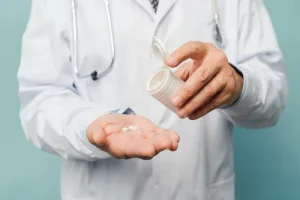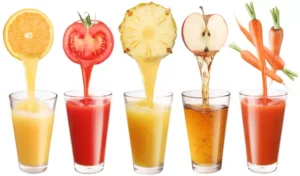
This approach was first implemented in Portugal, where drug possession was decriminalized in 2001 but people carrying a personal drug supply had to get mandatory treatment. This was accompanied by several other socio-medical and harm-reduction interventions for a holistic approach with wrap-around services. However, because existing laws against personal drug use had already been only loosely enforced, decriminalization may ultimately have formalized existing practices rather than drive new norms and attitudes. In the United States, a similar approach has been implemented in Oregon but has been less successful because people were not diverted to effective treatment. This suggests that even the best reform programs do not guarantee success because drug-related problems are shaped by additional factors, such as cultural attitudes, social support networks, or mental health resources.

Other life-changing complications

For some people, it may be safe to undergo withdrawal therapy on an outpatient basis. Others may need admission to a hospital or a residential treatment center. People with substance use disorder struggle to stop using the substance and often experience painful physical or psychological symptoms when they try to. Brain imaging studies of people with addiction show physical changes in areas of the brain that are critical to judgment, decision-making, learning and memory, and behavior control.12 These changes help explain the compulsive nature of addiction. Consider how a social drinker can become intoxicated, get behind the wheel of a car, and quickly turn a pleasurable activity into a tragedy that affects many lives.
What are the signs?
Speaking earlier, Ahmad praised the state governor’s commitment to combating drug abuse as evident in his visit to the Kiru reformatory. Different types of medications may be useful at different stages of treatment to help a patient stop abusing drugs, stay in treatment, and avoid relapse. When Biden filled out a federal form when he bought the handgun, he replied “no” to a question of whether he was “an unlawful user of, or addicted to, marijuana or any depressant, stimulant, narcotic drug, or any other controlled substance.” During his sentencing, the local court magistrate found his drug addiction had “robbed him” of his successful and high-profile media career and happy marriage. O’Keefe has waged a public battle against drug addiction and has been in and out of rehabilitation centres for the past three years. There is some evidence that natural variation in genetic makeup of the dopamine system may influence who gets addicted.
Science Education
Drug addiction research continues to push the boundaries of our understanding. Scientists are exploring new treatment modalities, including vaccines for addiction and novel pharmacological approaches. Neuroimaging studies are providing unprecedented insights into the addicted brain, potentially paving the way for more targeted interventions. As https://ecosoberhouse.com/ we look to the future, it’s clear that addressing drug use and addiction as a public health issue is paramount. The old paradigm of viewing addiction solely as a moral failing or criminal behavior is slowly giving way to a more nuanced, compassionate approach. Next on our list are the stimulants – cocaine, amphetamines, and methamphetamines.

- Despite these advances, we still do not fully understand why some people develop an addiction to drugs or how drugs change the brain to foster compulsive drug use.
- But they’re also highly addictive and potentially lethal when abused.
- It’s a pandemic that knows no borders, affecting rich and poor, young and old alike.
- Surges of dopamine in the reward circuit cause the reinforcement of pleasurable but unhealthy behaviors like taking drugs, leading people to repeat the behavior again and again.
Laws vary across countries, and even within them, and have fluctuated widely throughout history. It sometimes involves drug diversion from the individual for whom it was prescribed. Philip Jenkins suggests that there are two issues with the term “drug abuse”.

Unless otherwise specified, the information on our website and in our publications is in the public domain and may be reused or copied without permission. Read our copyright policy to learn more about our guidelines for reusing NIMH content. List of NIMH science news including press releases, science updates and institute announcements. Explore NIMH research training and career development opportunities. Information about resources such as data, tissue, model organisms and imaging resources to support the NIMH research community. NIMH supports research at universities, medical centers, and other institutions via grants, contracts, and cooperative agreements.
Light at the End of the Tunnel: Treatment and Recovery Options
- These analyses demonstrated that while some deficits in impulsive choice and impulsive action may only occur in early abstinence, others may persist even with sustained periods of abstinence.
- Though there are risk factors for developing substance use disorder, anyone can develop it.
- As the brain adapts to the presence of the drug, more is needed to achieve the same effect.
- Neuroticism is also linked to a diminished quality of life, another factor that could increase the allure of substance use.
- Treatment enables people to counteract addiction’s disruptive effects on their brain and behavior and regain control of their lives.
Stopping drug use is just one part of a long and complex recovery process. When people enter treatment, addiction has often caused serious consequences in their lives, possibly disrupting their health and how they function in their family lives, at work, and in the community. While relapse is a normal part of recovery, for some drugs, it can be very dangerous—even deadly. If a person uses as much of the drug as they did before quitting, they can easily overdose because their bodies are no longer adapted to their previous level of drug exposure. An overdose happens when the person uses enough of a drug to produce uncomfortable feelings, life-threatening symptoms, or death.
Social Media

Different substances and behaviors have different effects on a person’s health. Serious complications can cause health concerns or social situations to result in the end of a life. Other possible causes of addiction include chemical imbalances in the brain and mental disorders such as schizophrenia what is drug addiction or bipolar disorder. These disorders can lead to coping strategies that become addictions. There’s no cure, but treatment can help you stop using drugs and stay drug-free. When you use opioids for pain for a long time, for example, you may develop tolerance and even physical dependence.
Health Alerts from Harvard Medical School
But usually, you’re able to change your unhealthy habits or stop using altogether. You can also get addicted to prescription or illegally obtained narcotic pain medications, or opioids. In 2018, opioids played a role in two-thirds of all drug overdose deaths. It may help to get an independent perspective from someone you trust and who knows you well. You can start by discussing your substance use with your primary care provider. Or ask for a referral to a specialist in drug addiction, such as a licensed alcohol and drug counselor, or a psychiatrist or psychologist.
